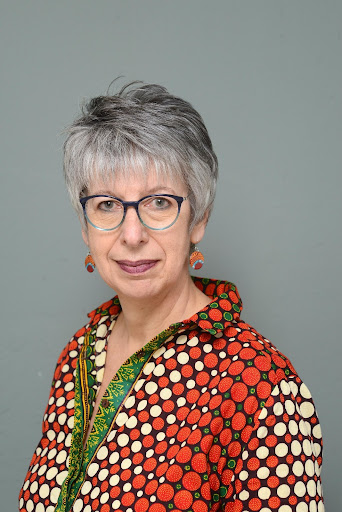
Hello, I am Barbara Klugman (PhD), offering freelance strategy, evaluation and learning support to social justice funders, networks and NGOs internationally.
Mindelyn Anderson, ICTIG Chair, encouraged members to share the narrative that informs, shapes or reflects our journeys as independent consultants.
I’m now in my fourteenth year as an independent consultant. It was a mid- to late- career shift after spending the ‘80s in anti-apartheid activism and lecturing in social anthropology, the ‘90s mobilising women nationally to shape post-apartheid women’s health policies, while also participating on government delegations in UN women’s rights conferences, co-drafting South Africa’s new population policy and gender and health policy and completing a PhD on the role of civil society in policy change; and the 2000s as a funder at the Ford Foundation in New York, supporting sexual and reproductive justice advocacy networks and researchers internationally.
I had not intended to follow this road. Before I left my job at Ford Foundation in 2009, I was offered a sabbatical which I used to address the gap I’d experienced as a funder in relation to how to evaluate advocacy in complex systems with multiple actors, interests and shifting contexts. Much of the literature drew on the same theorists I’d used for my PhD. I wrote up an approach I thought would work better than the conventional assumptions that one could set up indicators for social change initiatives in advance and from above. We tried it out in our Ford strategy and I invited some funder colleagues and evaluators to critique what we had done. One of them, Jane Reisman (ex-ORS Impact), said I should publish what I’d written and suggested platforms. Two funders asked me to talk to their staff and grantees. And next thing I knew, I was being asked to support them, and then others, in strategic reflection, evaluation and learning around movement-building and policy advocacy. I’ve been doing so ever since, all the while continuing to read and learn from the field. Only occasionally have I bid for work when something really appeals; for the rest work has come to me. Notably, I was approached to work with Ricardo Wilson-Grau, initiator of Outcome Harvesting on an evaluation of a women’s rights network, which gave me the opportunity to apply much of what I’d conceptualised in theory.
Rad Resources
This is my turning-point article, published by Foundation Review 2(3) 2010 , and then with more theory, in Reproductive Health Matters 19(38) 2011. Ricardo’s Outcome Harvesting: Principles Steps and Evaluation Applications unpacks the rationale for focusing on outcomes and how to do it. Coe and Schlangen’s No Royal Road report gave me new ideas in particular around contributions of multiple actors to the same social justice outcomes.
Lessons Learned
- Having a very specific focus drawing on my knowledge, skills and lived experience has attracted clients.
- Continuous reflexivity on if and how well I am practicing my social justice and feminist principles, and what enables or disables this, has helped me navigate the role, enhanced more recently by the growth in literature on principles-focused evaluation.
- Learning with and from other evaluators, in South Africa and globally, has enabled me to continue growing, not least, building one-on-one relationships, inviting critique and support, and drawing on the outcome harvesting community, the e-study, coffee breaks, AEA365, journals, and, when I can manage the distance and costs, the AEA conference, has allowed me to keep learning, notwithstanding the need for cultural and contextual translation.
- For social justice organisations, creating a seamless link between strategy and evaluation has helped them experience ‘MEL’ as both useful and empowering.
The American Evaluation Association is hosting IC TIG Week with our colleagues in the Independent Consulting Topical Interest Group. The contributions all this week to AEA365 come from our IC TIG members. Do you have questions, concerns, kudos, or content to extend this AEA365 contribution? Please add them in the comments section for this post on the AEA365 webpage so that we may enrich our community of practice. Would you like to submit an AEA365 Tip? Please send a note of interest to AEA365@eval.org. AEA365 is sponsored by the American Evaluation Association and provides a Tip-a-Day by and for evaluators. The views and opinions expressed on the AEA365 blog are solely those of the original authors and other contributors. These views and opinions do not necessarily represent those of the American Evaluation Association, and/or any/all contributors to this site.

Great to see you, Barbara, in the tip of the day. Enjoyed reading about your experiences in such important work, especially how you were learning in the field and applying it back to the theory you already knew. Beautiful picture, too!